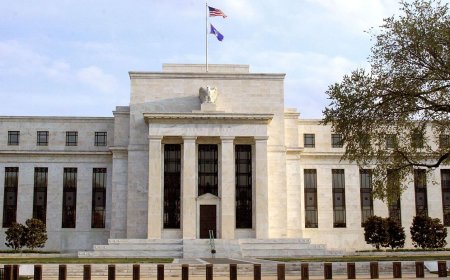London Faces More Setbacks in a Grueling Fight for Listings
London’s stock market continues to lose key listings to global rivals. Explore the challenges, reforms, and outlook for the City’s future as a global IPO hub.

London’s Fight to Retain Listings Intensifies as Global Competition Mounts
London, June 5, 2025 — The London Stock Exchange (LSE) is experiencing mounting pressure as its struggle to retain and attract high-profile company listings grows more arduous. Once considered one of the premier global financial centers for initial public offerings (IPOs), London is now grappling with a spate of setbacks, including high-profile departures, subdued IPO activity, and increasing competition from markets like New York and emerging financial hubs in Asia and the Middle East.
Major Setbacks Undermine Confidence
Over the past year, London has seen a wave of prominent firms either choosing to delist or redomicile to more lucrative financial environments. Most notably, ARM Holdings, the British chipmaker, opted for a U.S.-only listing in 2023 despite intense lobbying from UK officials. More recently, TUI Group finalized its plans to move its primary listing to Germany, while Irish building materials firm CRH completed its shift to New York in 2024.
According to data from EY, the LSE hosted just 23 IPOs in 2024, raising approximately £1.2 billion—a sharp contrast to the £14 billion raised in 2021.
“These moves are not just symbolic losses,” said Sarah Delaney, senior equity strategist at Beacon Global. “They reflect deeper structural issues—valuation discounts, liquidity concerns, and regulatory rigidity—that London must address.”
Root Causes: Regulation, Valuation, and Liquidity
Industry analysts cite multiple reasons behind London's weakening appeal. Valuation discrepancies remain a central concern. UK-listed firms often trade at significantly lower multiples compared to their U.S. counterparts, which can be unappealing for tech firms and high-growth companies seeking premium valuations.
In addition, London faces criticism for its relatively conservative regulatory framework. The Financial Conduct Authority (FCA) has introduced reforms aimed at easing listing requirements—including a single-class share structure—but these measures have yet to translate into tangible investor or issuer enthusiasm.
“There’s an undeniable perception issue,” said Andrew Liu, capital markets partner at Deloitte UK. “Despite reforms, the market still feels cumbersome and outdated compared to the flexibility and depth of the U.S. exchanges.”
Global Competition Heating Up
While London struggles to modernize, rival exchanges are capitalizing. The New York Stock Exchange (NYSE) and Nasdaq continue to dominate global IPOs, particularly in tech and biotech. Meanwhile, markets in the Middle East—especially Saudi Arabia’s Tadawul—are drawing energy and infrastructure firms with capital-rich investors and sovereign backing.
Even within Europe, exchanges in Amsterdam and Frankfurt are gaining momentum. Regulatory agility and better connectivity with global capital markets are cited as reasons for their rise.
“London is not just losing to New York. It’s losing its influence within Europe,” noted Martina Reiss, head of European equities at Alphex Asset Management.
Government and Regulatory Response
In response to these challenges, UK Chancellor Jeremy Hunt has reiterated his commitment to financial reforms. The Edinburgh Reforms, aimed at bolstering the UK's financial services sector post-Brexit, promise greater flexibility, faster IPO approvals, and regulatory streamlining.
Moreover, the government has signaled support for more favorable capital gains tax regimes and incentives for pension funds to invest domestically—moves seen as potentially stimulating domestic capital participation.
“We are determined to restore London’s standing,” Hunt said at a recent financial summit. “These reforms are just the beginning of a more dynamic era for British capital markets.”
Investor Outlook: Cautious but Hopeful
Despite the current challenges, some investors remain cautiously optimistic. With interest rates expected to stabilize in the UK, and global volatility easing, there’s a belief that the groundwork laid by reforms could eventually lead to a revival.
“If the UK can align incentives for both issuers and investors while modernizing its listing infrastructure, there’s no reason it can’t recover some of its lost ground,” said Clive Mason, a portfolio manager at Brookstone Capital.
However, others warn that unless there is a sharp improvement in deal flow and investor confidence, London risks becoming a secondary listing destination—a fallback rather than a first choice.
London's fight to retain its relevance in global capital markets is far from over. Structural challenges, regulatory inertia, and fierce global competition continue to test the resilience of its equity markets. While reforms are underway, the city must move swiftly and boldly to restore confidence and ensure that its historic financial legacy does not fade into the background of a rapidly evolving global economy.
What's Your Reaction?
 Like
0
Like
0
 Dislike
0
Dislike
0
 Love
0
Love
0
 Funny
0
Funny
0
 Angry
0
Angry
0
 Sad
0
Sad
0
 Wow
0
Wow
0












































































